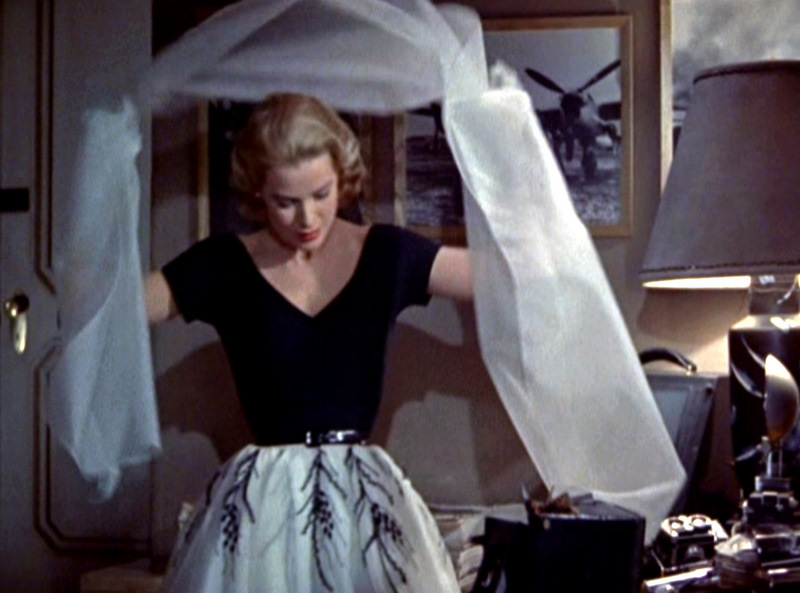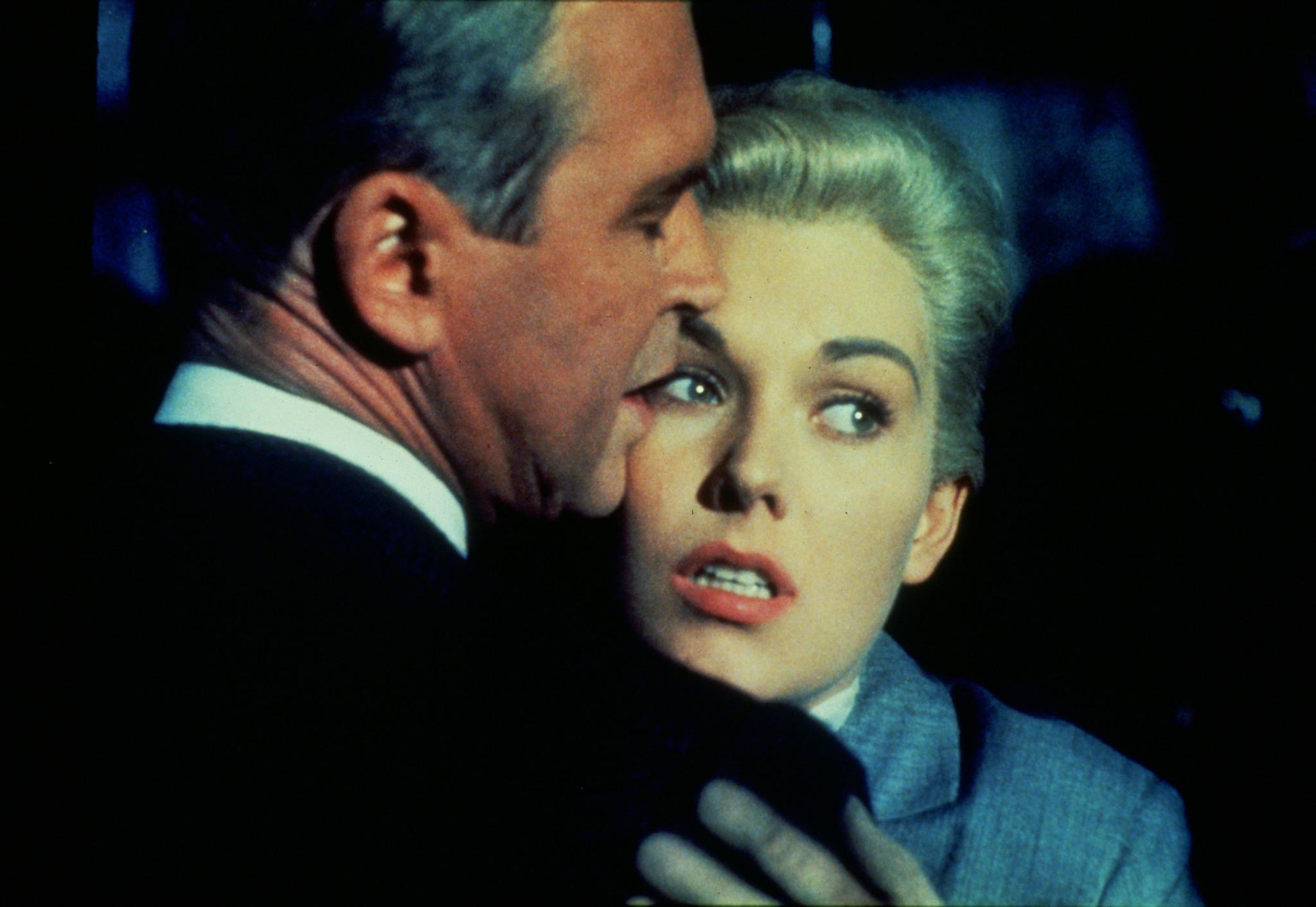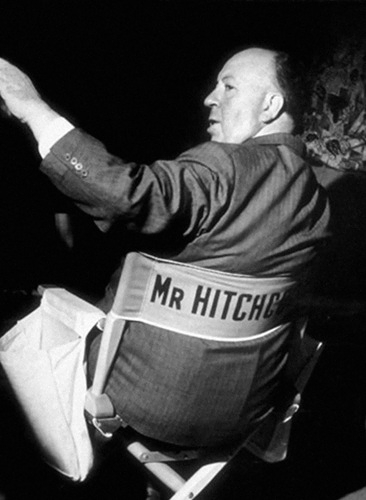 Amir here, with this month's edition of Team Top Ten. To celebrate Alfred Hitchcock's birthday next week (Aug 13th), we've decided to celebrate his career by looking at something that isn't discussed quite as often as it should be: the performances he directed.
Amir here, with this month's edition of Team Top Ten. To celebrate Alfred Hitchcock's birthday next week (Aug 13th), we've decided to celebrate his career by looking at something that isn't discussed quite as often as it should be: the performances he directed.
Hitchcock has more auteur cred than any other director so its understandable that his presence behind the camera attracts the most attention in all discourse about his oeuvre. Yet, his films are undeniably filled with amazing performances, from archetypal blondes and influential villains to smaller, eccentric supporting turns from characters actors. The list we've compiled today is the Top Ten Most Memorable Performances from Alfred Hitchcock's Films.
Make of "memorable" what you will! Our voters each certainly had their own thinking process. Some of us - myself included - took the word literally and voted for what had stuck with us the most, irrespective of size and quality of the performance. Some went for the best performances, some for the best marriage of actor and role and some for a mix of all of those things. Naturally, the final list veers towards the consensus, but as always, I've included bits and pieces of our individual ballots that stood out after the list.
Without further ado...
10. Grace Kelly as Lisa Fremont (Rear Window)
There's memorable, and there's iconic. And then there's Grace Kelly in Edith Head. A performance all at once decadent and demure, Hitchcock's crown jewel struts and strolls glowingly in Rear Window, lithely giving off the allure to which she's come to recognize is her signature (and she worries, her sole) appeal. It's only as the mystery of the picture begins to unravel that the shades are lifted (literally) and the flinty little girl we thought we knew positions herself to be the real knight in shining armor. The famed icy Hitchcock blonde archetype manages that most remarkable and memorable of transformations in this, his best film; thanks to and because of Ms. Kelly, the sculpture discovers itself and its purpose. It's a beautiful thing when an actor can make a director forget himself and his tendencies. Something New Happens.
- Beau McCoy
9 more iconic turns after the jump
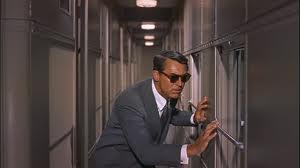
9. Cary Grant as Roger Thornhill (North by Northwest)
With his transatlantic voice, dashing good looks, and debonair style, Cary Grant was never cut out to be the 'everyman'. His was a persona that filled the screen effortlessly with charisma. A movie star in every sense of the word. So when he does try to play a regular type in North by Northwest (his fourth and last collaboration with Hitchcock), his Roger Thornhill, the New York advertising executive in the grey suit that is mistakenly taken for a government agent by a group of spies, becomes, in way, more believable and enjoyable because of his star status. No way could the man we see before us be living some drab, office-job life. This man has to be destined for greater things. And as he narrowly avoids scrape after scrape in an increasingly elaborate series of events (staged car accidents, stabbings, malicious crop-dusting biplanes, a freaking chase scene across Mount Rushmore, for christsake) the everyman becomes the superman we know only a Cary Grant could be.
- Andrew Stewart
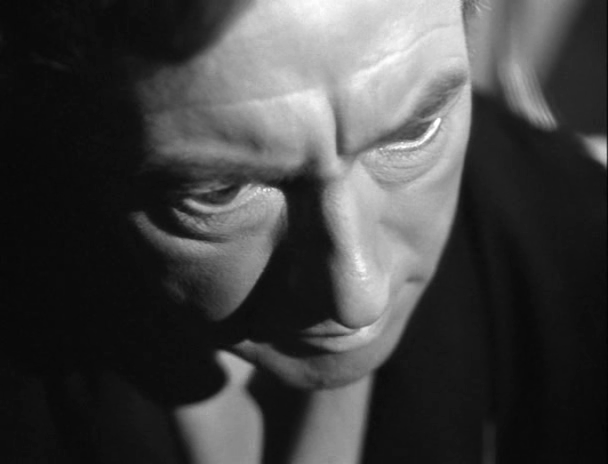
8. Claude Rains as Alexander Sebastian (Notorious)
Arguably the best acted film of Hitchcock's career, Notorious boasts legendary turns from Ingrid Bergman and Cary Grant, as well as a career-crowning performance from the greatest character actor of Hollywood's Golden Age, Claude Rains. As a scheming nazi hopelessly in love with Bergman's Alicia Huberman, Rains walks an impossibly thin line between being the film's villain and its most potent tragic figure, a despicable man whose one noble feeling will be his undoing. Torn between his heart's desire and his abject duty (embodied, in typical Hitchcockian fashion, by his tyrannical mother), Rains' Alexander Sebastian remains, for my money, the most complex, moving and unforgettable member of Hitchcock's inimitable gallery of psychos.
- Julien Kojfer
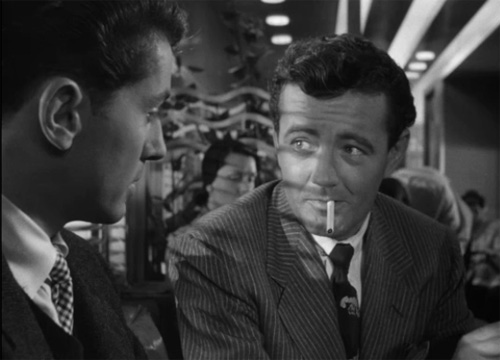
7. Robert Walker as Bruno Anthony (Strangers on a Train)
There have been charming monsters and there have been psycho killers but there has never been a villain quite like Robert Walker in Strangers on a Train. His Bruno is an overgrown rich boy, a middle aged sociopath still throwing tantrums when he doesn’t get his way. Yet the endlessly fascinating thing about Walker’s performance is just how endearing he makes this nutcase. Bruno's ingenious crisscrossing murder scheme is like a shiny new toy he can’t wait to get out of the box, and sharing it with straight arrow Farley Granger is an act of undisguised puppy love. Nine years before Norman Bates, Walker created a Hitchcock antagonist audiences could root for.
- Michael C.
6. Kim Novak as Judy Barton/Madeleine Elster (Vertigo)
It's all in the eyes. Those all-seeing, impenetrable eyes. There is simply no actress with eyes as bewitching as Kim Novak's. and they haven't been used to better effect than in Alfred Hitchcock's Vertigo. As "Madeleine Elster" they usually have a far-away, half-present look - cold as ice. As Judy Barton, they burn like fire - with disbelief, anger, and passion. Vertigo has many virtues (the dolly zoom, the location photography, the score), many of which are even on Novak's person (that spiral hairstyle, those dresses). But for me, the reason Novak stands out in Vertigo, what makes this the most memorable role in both Hitchcock's filmography as well as her own, is that look in her eyes. That look that alternately accuses Scottie and pleads with him; that loves and hates and feels sorry for him in equal measure. That impossibly alluring look that stares into the depth of your soul and asks, "Wouldn't you become obsessed with me, too?" As details from other Hitchcock films fade, Novak's eyes only seem to burn brighter.
- Daniel Bayer
5. James Stewart as Scottie Ferguson (Vertigo)
Does the lead actor in the best film of all time really need to be justified as a memorable character? Then again, he is one of the reasons Vertigo is held in such high regard. No one before or after has been haunted as much by love as Scottie. His obsession with Madelein/Carlotta redefined the way audiences saw an iconic Hollywood leading man. It changed the way we perceived on screen love and its ability to lead us to both ecstasy and a never-ending cycle of misery.
- Jose Solis
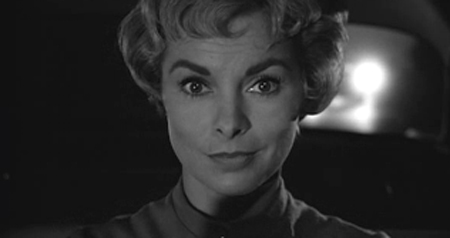
4. Janet Leigh as Marion Crane (Psycho)
There are few actresses with Janet Leigh's gift for the underwritten part. A glance, a pout, a downcast eye, and Janet Leigh speaks volumes. This served her well in many movies in which her character was virtually "the girl" and she gave that girl life. Marion Crane in Psycho is not just "the girl," but her brief screentime means that the character requires an actress who can deliver quite a lot with very little, and that actress is Janet Leigh. Her journey from honest, passionate woman to thief and back again, and then to victim, is complex, sensual, thoughtful, and tragic. The shower scene is not just brilliantly-filmed horror, it is the death of a character we have come to love and sympathize with. We rooted for her, and she lost.
- Deborah Lipp
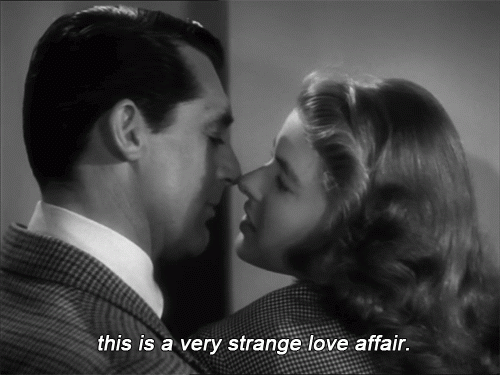
3. Ingrid Bergman as Alicia Huberman (Notorious)
Daughter of infamy, drunken hostess, bristling recruit, swooning beloved, deep-cover spy, panicking agent, endangered asset, barely conscious body: even more than most Hitchcock women, Alicia Huberman gets pulled into multiple roles, and nearly pulled apart. Her husky voice and pugnacious demeanor suggest real mettle, but her increasingly wild eyes and catching throat suggest that she might not make it. Bergman, like her character, hungers to please a charismatic seducer-employer who both inspires her and forces her into submission. Tougher and more carnal than she was in Gaslight, she's nonetheless as anxious, as imperiled, and as brutally controlled, more by her lover-ally than her dangerous target, and there's a new and wicked sense that she likes it this way.
- Nick Davis
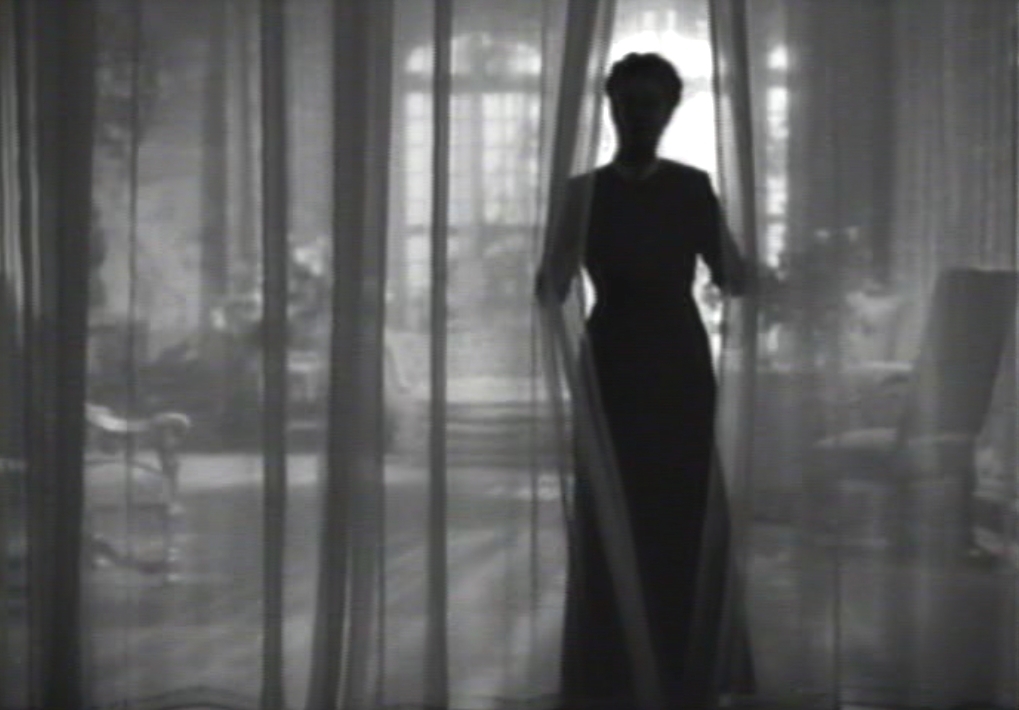
2. Judith Anderson as Mrs. Danvers (Rebecca)
Neither the first nor last Psychopathic Queer in Hitcock’s canon, Anderson’s Mrs. Danvers is, nevertheless, the most frightening and intense and purely evil. Moving with spectral grace, staring like a bird of prey, speaking in a menacing half-whisper, Anderson gave a terrific physical performance that the camera absolutely fell in love with, positioning her as the primary focal point of every frame in which she appears, dominating the viewer just like she dominates the mousy protagonist. But even beyond her terrific presence, it’s the sense of unabashed hatred right behind Anderson’s eyes, turning even the most banal domestic scene into an act of emotional violence, that makes her one of the most terrifying villains in the director’s career.
-Tim Brayton
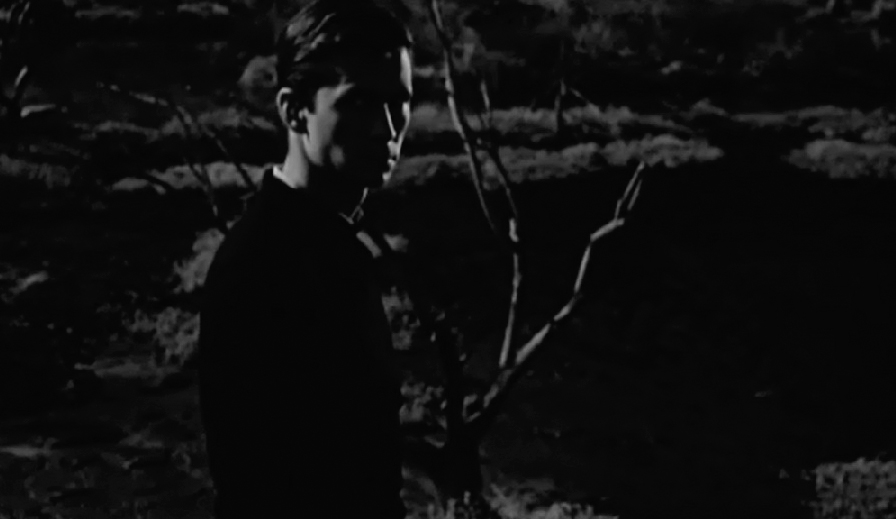
1. Anthony Perkins as Norman Bates (Psycho)
I once read a 'nice guys' article in Jezebel with Norman Bates picture as the leading image and it changed the way I thought of him. This Norman coexists with his deranged end. We spent an hour or so watching him, we can’t negate all his facets. Anthony Perkins shows us psychological ambiguities, an approach that’s absent even in a lot of Hitchcock’s work which is itself fascinated by psychology. Portraying Norman this way Perkins makes us look at him differently and want certain things for him. We’re reminded of the ‘nice guys’ in our lives, their facade conflicting with their troubled pasts and lack of confidence. We even want him to recover from his neuroses and marry Marion, just like the normal Norman, the one struggling to come out and defeat his fiery demons, must have needed. This classic character subverts what we’ve come to know about movies, which often depict disruption only to restore equilibrium. Norman's violence changed the movies and haunts forever.
- Paolo Kagaoan
Trivia
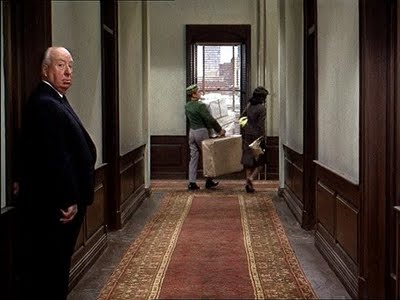 Hitchcock's cameo at the beginning of Marnie
Hitchcock's cameo at the beginning of Marnie
• Twenty of Hitchcock's films were represented, most with more than one performance cited. In total forty-five performances were mentioned on the ballots
• Only two voters left Anthony Perkins off their ballot. Nearly everyone who mentioned him ranked him in their top three. Quite a memorable performance, I'd say.
• Five actors were mentioned for more than one of their collaborations with the master of suspense: Jimmy Stewart, Grace Kelly, Cary Grant, Ingrid Bergman and Tippi Hedren.
• The more most frequently cited performances which didn't make the final collective ballot were Joan Fontaine (Rebecca), Tippi Hedren (The Birds), Doris Day (The Man Who Knew Too Much) and Joseph Cotten (Shadow of a Doubt).
• Individual Ballots? Not everyone will share them but here is Tim's in brief and JA's with capsules!
